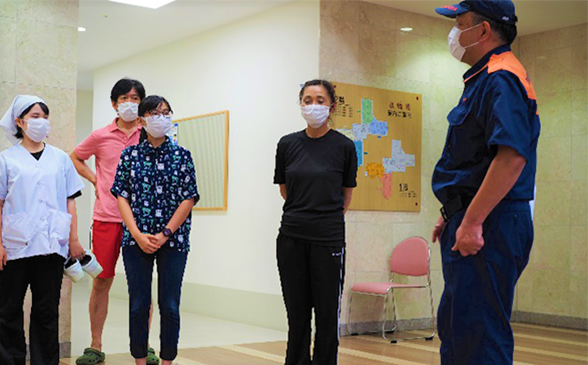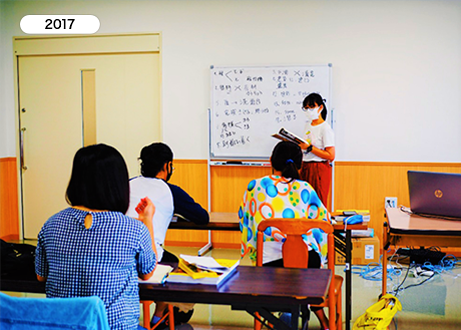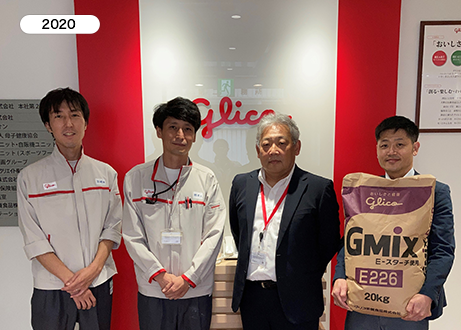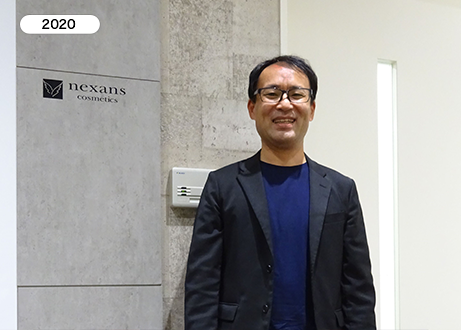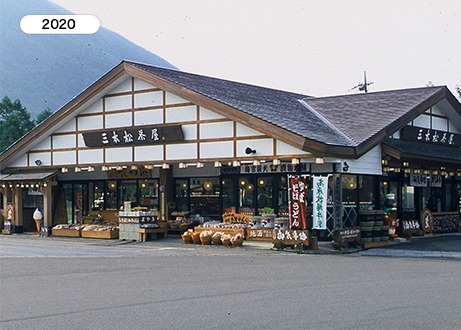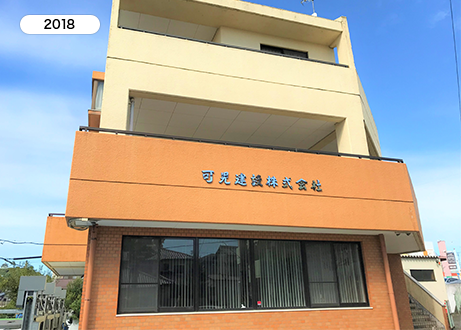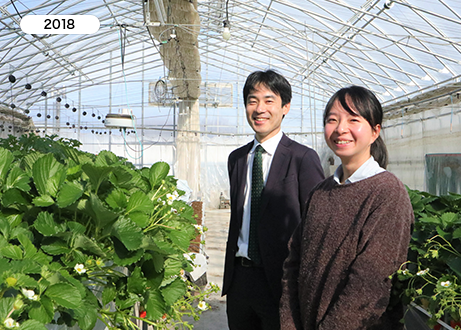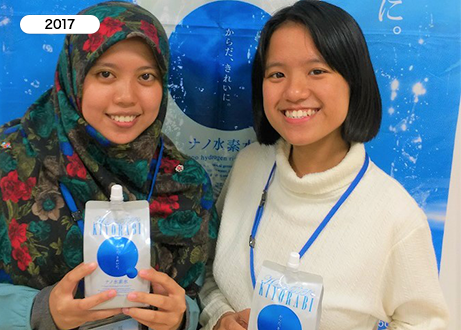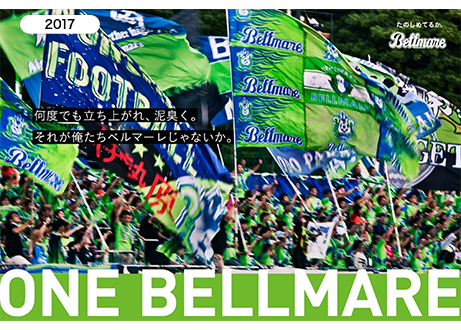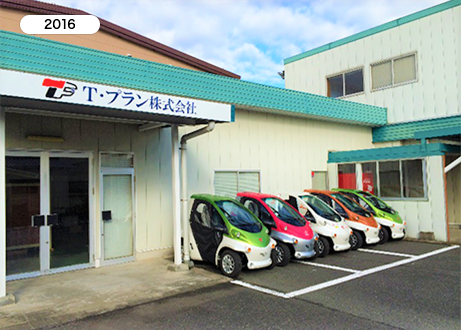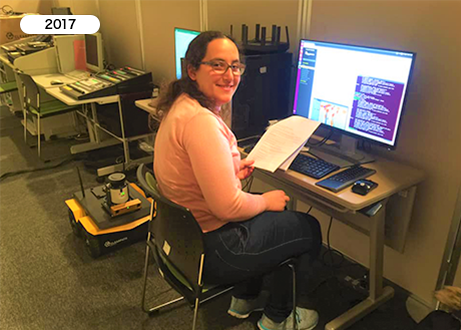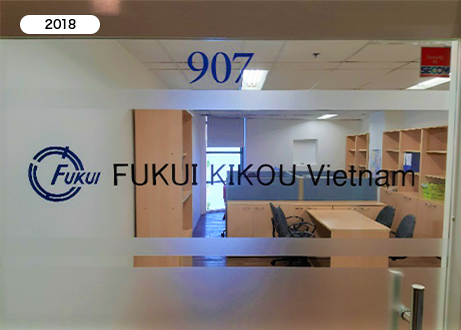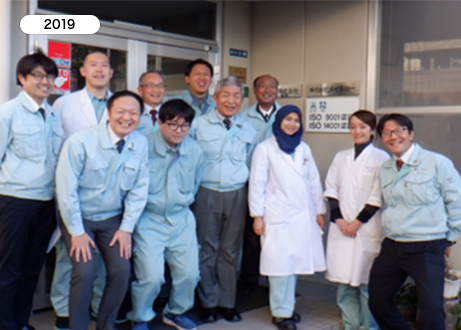3years after the internship

Creation of the environment/structure to employ foreign nursing care human resources
Creation of manuals from the perspective of foreigner's point of view (a foreign staff education manual, response flowchart when an accident occurs, and manuals for norovirus and influenza)
A special elderly nursing home is our main business and we operate a healthcare facility for the elderly, home-based services, and welfare services for the disabled. The size is not that large but currently, 20 foreign certified care workers are playing active roles and people from various countries, such as the Philippines, Vietnam, China, Sri Lanka, Russia, etc., are working together with Japanese care workers.
 Please tell us about your story since you hired an intern as an employee after the internship.
Please tell us about your story since you hired an intern as an employee after the internship.
Currently, Pham is in charge of interpretation between foreign certified care workers and Japanese staff and assigned as a Japanese-language instructor for foreign students and EPA certified care worker for candidates that we accepted. In the beginning of acceptance of an intern, there was a mismatch between the purpose of acceptance on the company side and the intern's intention. We assumed to have someone who was interested in care welfare; however, Pham-san aimed to become a Japanese interpreter in the future, so we struggled to bridge the gap between us. We also had the intention to hire the person who came as an intern, so we wanted to clarify the advantages of accepting her and confirm her intention. As a result, there were some differences in the ways of communicating intent and feelings between Japanese and Vietnamese, and I remember it was on the day of her return to the country and we were heading to the airport when we reached an agreement. Come to think of it, I feel such experience is all utilized.
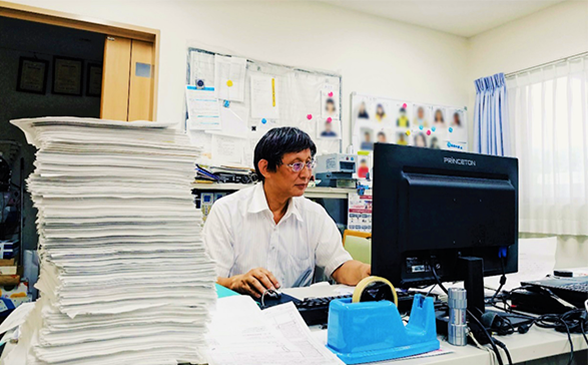
 How did the internship affect you, your employees and organizations? And is it still going on?
How did the internship affect you, your employees and organizations? And is it still going on?
Because we accept a foreign staff member who has different culture and climate, misunderstandings occurr in communicating with not only Japanese staff members but also among foreign staff members. Particularly in the case of the nursing care site, problem due to the difference in subtle nuances frequently occurs. For that reason, Pham who understands the differences in culture and communication and fills the gap between them is an absolute treasure. As she was skilled at paperwork when she was an intern, she has been very much helpful as she quickly performs her duties. When she came in the beginning, we had our hands full with the acceptance of two foreign certified care workers but now, we have gained the confidence to actively accept foreign students and certified care workers from various countries. As she intervenes in any problem caused by misunderstandings, Japanese staff members are now able to make flexible responses.
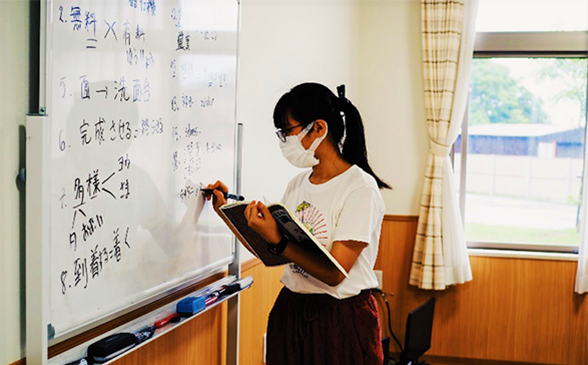
 What would you like to do in the future by taking advantage of your internship experience?
What would you like to do in the future by taking advantage of your internship experience?
labour shortage has become serious in medical and welfare sites in Japan. On the other hand, due to being conservative in acceptance even though foreign workers are needed, I feel that approaching troubled facilities and people is our mission. In the near future, the problem of an aging population is expected to arise in Asian countries such as China and Vietnam. For foreign certified care workers working in Japan, I would like to help making use of their experience for the future of their respective countries. I would like them to be aware that caring for the elderly in Japan will lead to contributing to their respective countries and to find their jobs rewarding. At the care welfare sites, various problems occur. The accepting company's flexibility will be tested in working with foreign nationals. I would like to "comfortably" and "patiently" move foward with the promotion of telling and understanding the respective countries' customs.
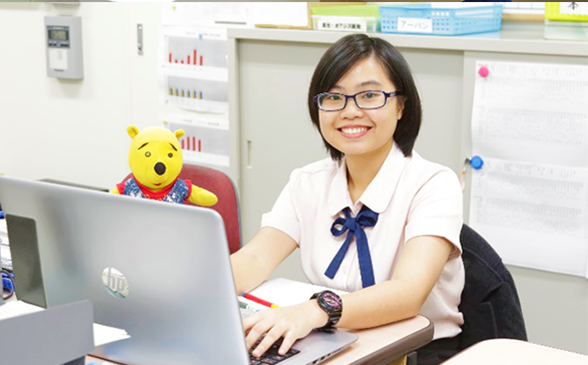
When I participated in my internship, I did not experience in nursing care or have knowledge on care and welfare. At that time, I thought it was a mismatch because the company that accepted me was different from what I had expected, but I could have a meaningful experience leading to my current job. The most impressive thing was that Japanese staff members took good care of the elderly. Interpretation in a nursing care site is interesting and because my workplace is diversified, I can learn new things every day, which is fun. In Vietnam, we clearly say our opinions but it is different in Japan. I think communication to directly express one's intentions is important in understanding the difference in culture. While working as an interpreter for the past two years, Japanese staff members have changed to clearly expressing their opinions. I also find my job of teaching Japanese language to foreign nationals very rewarding and my dream is to get a qualification as a Japanese-language teacher in the future.
